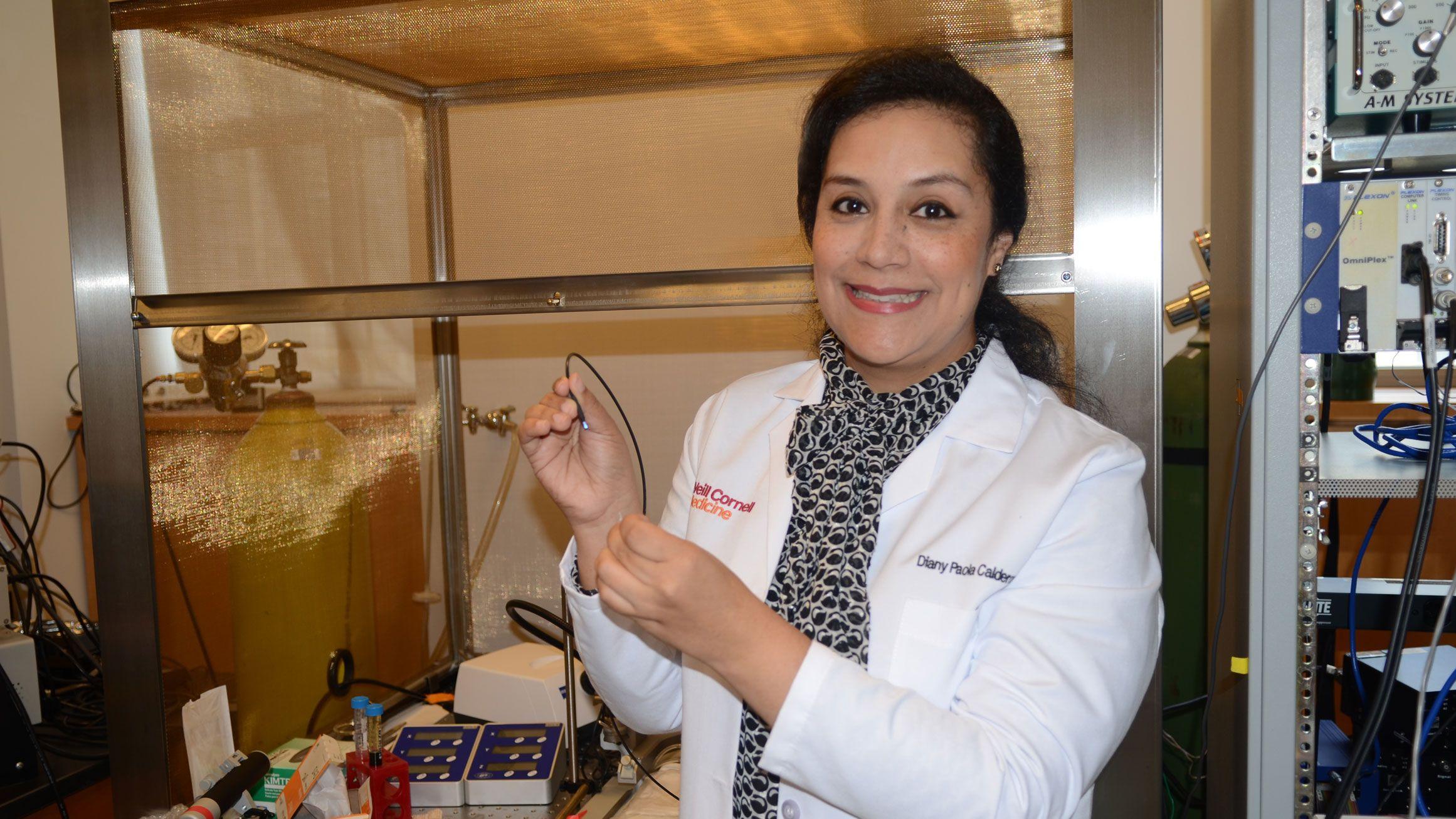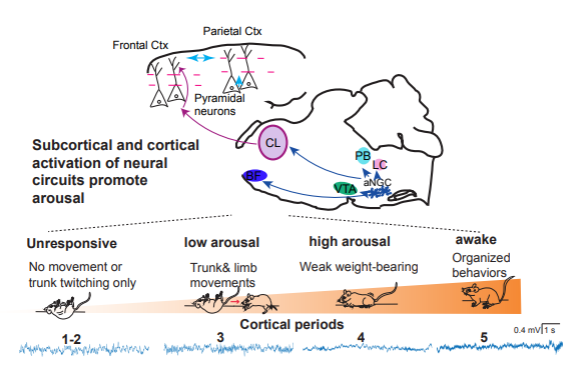
Research
Calderon and her lab are interested in understanding the neuronal mechanisms by which the brain recovers from low brain activity states, such as coma induced after brain injury, hypoglycemic coma, and other pathological conditions. However, since pathological states of unconsciousness are vastly heterogeneous, having a clear understanding of ordinary recovery serves to better appreciate the variability imposed by the injury to cortical activity and behavior. Thus, Calderon has analyzed the neural dynamics linked to the behavior of an individual en route to consciousness when emerging from anesthesia, a coma-like state in which the brain remains anatomically intact after the anesthetic exposure. Her group discovered that animals emerging from diverse coma-like states share a common dynamic process of cortical and motor arousal that can be consistently sequenced from deep to high arousal levels. They identified five cortical periods that tracked restored motor behavior in a range of anesthetics, whether inhaled or injected, alongside conventional righting reflex assays. Based on these findings, they postulate that restoring waking is a common progressive process in which cortical patterns contain metrics of consciousness that distinguish reflexive from purposeful movements.
Her lab recently described a novel approach that identifies electroencephalographic cortical patterns that synchronize with transient shifts of autonomic and behavioral dynamics, revealing a concurrent activation of the arousal circuits that elicit varying somatic and autonomic responses. This method quantitatively and continuously tracks arousal levels, allowing the detection of transitions from one state of consciousness to another and establishing the frequent arousal level fluctuations caused by drastic metabolic and functional changes in rodents and humans. Her latest work focuses on understanding the temporal dynamics and neural circuits that distinguish reflexive from the initiation of voluntary behaviors in rodent-low arousal models, a critical factor in the clinic to establish a successful clinical assessment and prediction of recovery in brain-injured patients.
Figure 1

Current Projects:
- Biomarkers for Consciousness
- Arousal pathways
- Brain injury recovery
Bio
Calderon received her medical degree from El Bosque University (Colombia) and her Ph.D. in neuroscience from The Albert Einstein College of Medicine under the mentorship of Kamran Khodakhah. She was then a post-doctoral fellow at the Laboratory of Neurobiology and Behavior at Rockefeller University under the supervision of Donald Pfaff. She later joined Weill Cornell College of Medicine and was appointed Assistant Professor of Neuroscience in Anesthesiology. Calderon is now a member of the Weill Cornell Graduate School.
Distinctions:
- Paper of the Year Award, Brain and Mind Research Institute (2020)
- Sackler Brain and Mind Research Institute Fellowship (2018)
- Grass Fellowship, The Marine Biological laboratory (2015)
- International Postdoctoral Fellowship, American Association of University Women (2012)
- Women and Science postdoctoral fellowship, the Rockefeller University (2012)
- Julius Marmur Research Award, Albert Einstein College of Medicine (2011)
